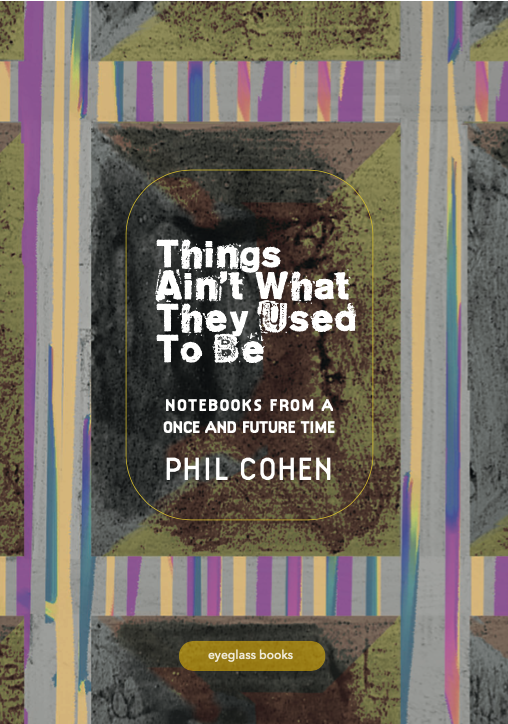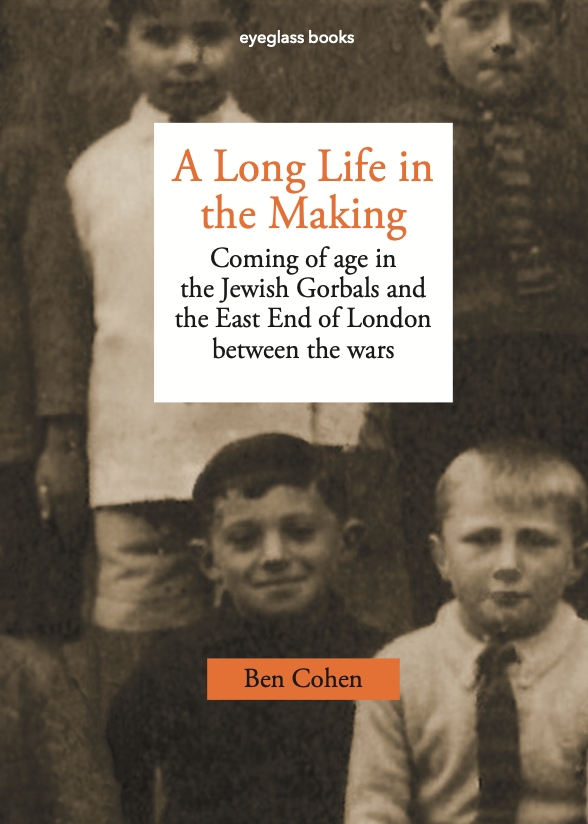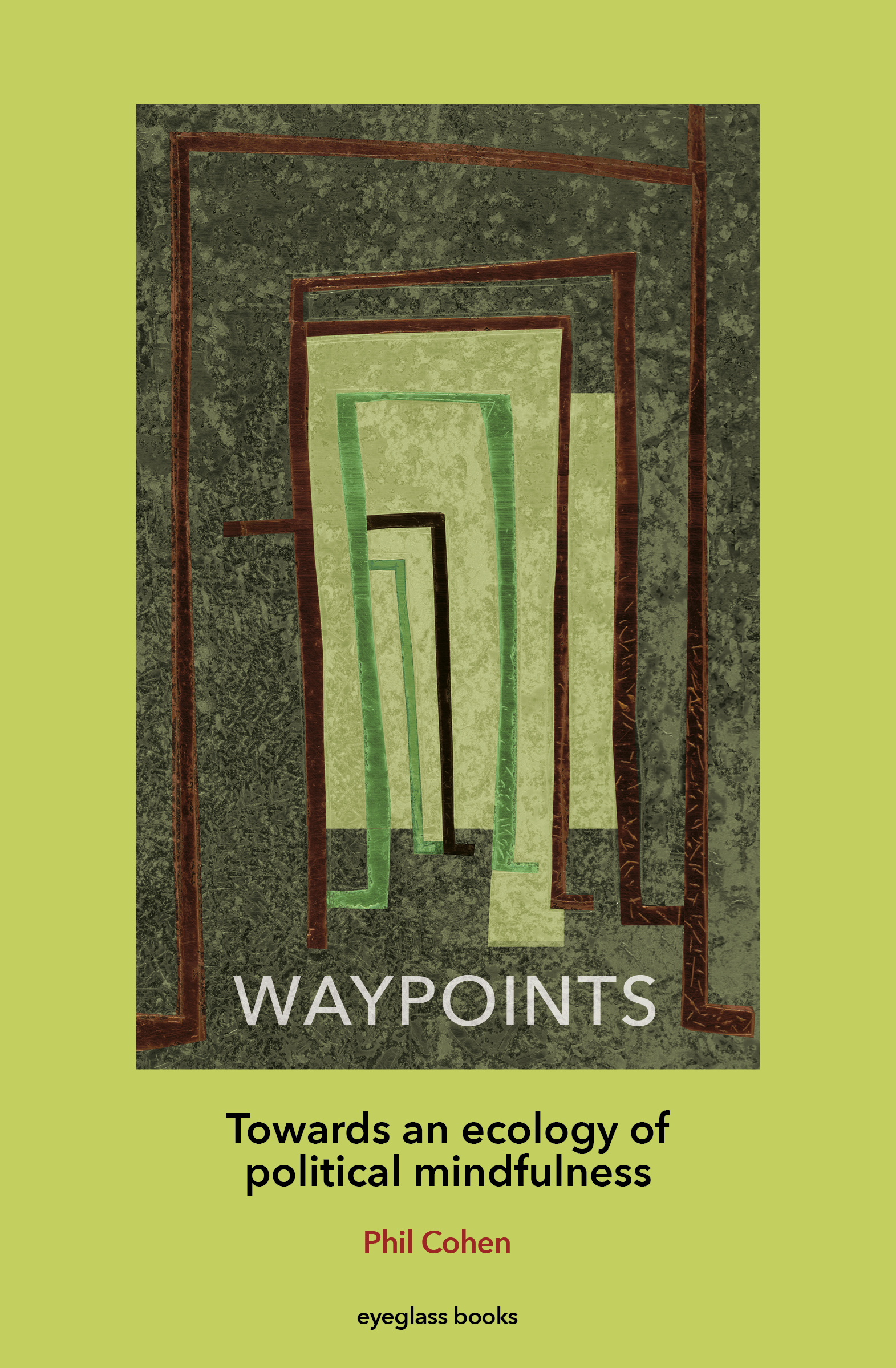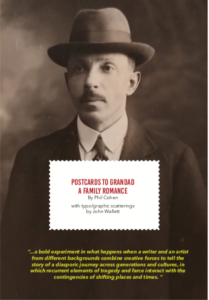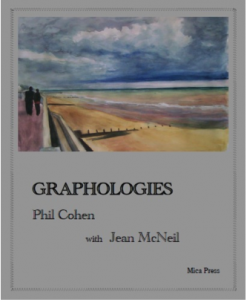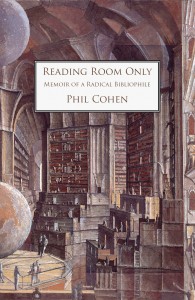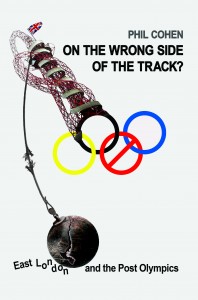In this interview Phil Cohen discusses his latest project and two linked publications from the Left wing think tank Compass.
How did this project come about?
For me the starting point in this journey goes back to the 1980’s , the Kinnock years, when having abolished the Young Socialists because it was controlled by Trotskyists, they launched an initiative called Labour listens to Youth. I was invited to give a talk to a constituency Labour Party meeting about political listening and I talked about psychoanalysis as a particular form of attentiveness to what remained unspoken in most political discourse. The audience listened politely but never really engaged with the ideas in discussion. Afterwards the chairperson came up and apologized for the lack of response ‘ We don’t take much to Freud or psychoanalysis in the party to be honest. All that stuff about dreams and phantasies!. We are more concerned with the real world and how to change it materially for the better’.
So immediately the problem here is that a certain economism, linked to notions of technological progress has always been part of Labourism’s intellectual baggage. It has prevented the party from moving beyond purely transactional modes of political education (i.e. propaganda /recruitment) based on appeals to rational self interest. Fast forward to 2020 and the same narrow view has informed the Labour Party’s approach to the pandemic. It is good on the material inequalities in public health provision that have become so starkly visible, but implicitly adopts the same model of risk as the Government when it comes strategies for managing the pandemic.
Could you say more about what this model entails?
The Government likes to tell us that their policies are ‘just following the science’, but the issue is whose science and what kind of science. It is clear in fact that the Exiteers, are being driven by a largely political agenda, and just like the Brexiteers, with whom they have much in common, they have a Merrie England vision of an island nation, secure in its borders throwing off the yoke of lockdown, and resuming its triumphal trajectory towards the ever sunlit beaches of Borisville- on- sea.
However Covid 19 is a communicable disease which follows its own rules, rules which are not just about its real relations of physical transmission, which in any case scientists have yet to fully fathom, but about a set of imaginary relations transmitted through social and cultural media, that obey their own quite different logic. That is what my essay is largely about.
The government’s strategy is informed by a rational choice theory of risk underpinned by nudge economics It is a model which assumes that given proper health messaging, individual citizens are incentivized by material self interest to make rational decisions about risk, and are thus ultimately responsible for their own health outcomes. This fits perfectly with the neo-liberal health agenda but it does not remotely correspond to the complexity of the real life situations which many people find themselves in, where they face impossible choices, between equally difficult and risky situations and find themselves being pulled emotionally in several directions at once.
So what alternative way is there of thinking about the pandemic?
To understand what is at stake here I think we have to draw on some of the insights and perspectives of the human sciences, and in particular psychoanalysis and anthropology. So in my essay I explore some of the different ways risk is perceived and acted upon, or ignored, mapping out a kind of emotional geography, and in particular distinguishing between people whose model of the world is of a basically safe place, with a few dangerous or thrilling hotspots in it, and those for whom conversely the world is a basically dangerous and hostile place, with a few safe niches or bolt holes, to which they cling for dear life.
I look at how these emotional dispositions might shape peoples responses to Covid, and in particular to lockdown. At the same time, these responses, which are first learnt from parents and peers, are a function of the degree of material and symbolic control which people exercise over their environment, and this in turn is obviously affected by class, ethnicity, gender, and age., as well as by a host of local situational factors.
To map the political dimensions of these personal orientations I have drawn on the work of an anthropologist, Mary Douglas, who has developed a cultural theory of risk, it was very influential in the 1980’s but today has been largely forgotten despite its relevance to the present crisis. For her, perceptions and responses to health or environmental risk are a function of the degree and type of social and cultural capital at people’s disposal, how much or little confidence or trust they can afford in social and political institutions, and what kind of cultural resources they can draw on in representing their relationships to other people and to power structures. In the essay I have built on this model, and linked it to the psychoanalytic perspective , to outline four existential standpoints towards risk : authoritarian, libertarian, communitarian and fatalistic and I try and draw out the implication of each standpoint for how different groups have responded to Covid 19 and to the measures taken to manage it.
So yes, as Compass folk like to say, its bloody complicated, and it underlines the fact that one size fits all approaches to tackling the pandemic are likely to fail. Issuing categorical imperatives : Stay home, Save the NHS, backed by legal sanctions, only works as long as everyone either agrees or is forced to obey them without exception. Such imperatives are uncomplicated because they take no account of differences in individual circumstances. For example if wearing masks is mandatory and everyone wears one, they may be somewhat effective in reducing the risk of transmission. But if only some people wear them, then their effectiveness falls exponentially. In contrast, what Kant called hypothetical imperatives are subject to local negotiation, take into account locally situated meanings and can more easily engineer active consent but are more difficult to institutionalise. The governments public health messaging has been so confused partly because it continually veers between the two kinds of imperative and the authoritarian and libertarian positions which underpin them.
What other kinds of complication do you see?
A second kind of complication which I explore in the essay is the way existing social and cultural inequalities have not only become more transparent, but more condensed , as they are refracted through a new kind of bio-politics, new ways of defining, surveilling, and controlling populations of the healthy and the sick. In the essay I look at the way Covid 19 is replaying the generation game, and also at the racial profiling of BAME communities.
Finally the essay looks at the implications of all this for the Labour Party, in particular for its relation to a new political actor which has emerged through the pandemic, which I call the hands on working class, whether they are handling people, or goods, or the tools of various trades, they have found themselves on the front line in the most risky situations; their labour for so long disregarded and underpaid, perhaps unsurprising given that so much of it is done by women and the BAME community, this work has now been widely recognised as of decisive importance for maintaining the fabric of civil society. This transvaluation of labour values must surely lie at the core of the Labour’s Party’s programme for recovery, both its own recovery as a viable force of opposition to the Tories, and for communities which have mobilised long dormant forms of collective enterprise and mutual aid in response to the crisis, but which have nevertheless become disconnected from organized politics and the metropolitan Left. We need an exit strategy which gets us out of current moral panic focused on ‘high risk carriers, the new untouchables, and builds this emergent moral economy into a new political economy, in which the health of the body politics is conditional on the wellbeing of the many and not the few.
You talk about political mindfulness in the essay and it is also the focus of the companion text published by Compass. Can you spell out what you mean by this. In what was is it different from more conventional approaches to mindfulness, which have been so criticized on the Left?
Mindfulness comes in. It comes in two modes the first privileges the personal dimension of experience and the second the political dimension. , and one without the other leads either to the de-politicisation of experience, or to the de-personalisation of politics: political machine politics, government by algorithm. So let’s look at each in turn.
Intensive: Covid 19 concentrates minds wonderfully, but also anxiously on the body,on our immediate tactile relationship to the physical environment – in a way the pandemic has turned us all into slightly hysterical materialists. Certainly lockdown and social distancing has made us realise how much we need and miss the embodied nature of social interaction and personal relationships; digital fences and virtual communication are no substitute for the real thing when it comes to making new neighbours.
Mindfulness as a technique for concentrating our attention through meditation on inner states of mind and body, and their inter- connection has become an important element in the psychological survival toolkit for people on the pandemic front line, in BAME communities, as a way of dealing with extreme states of anxiety, stress and depression. However maybe this needs to be supplemented by more psychodynamic approaches to understanding the long term impact on mental health, and how we are to address the likely epidemic of post traumatic stress disorders. There is also a more immediately political application : the civil rights and other non-violent movements have for a long time utilised mindful meditation techniques to enable protesters to retain their composure in the face of provocation from the police and hostile counter-demonstrators.
As for the extensive mode of political mindfulness this refers to the capacity to make connections between different sites and practices of power and inequality. Unless those connections are somehow made concretely, there is a risk of political discourse degenerating into various forms of mindlessness, associated either with manic knee jerk activism, which iterates all on one note or at the other extreme, fatalism and defeatism. And under present circumstances it is all too easy to feel overwhelmed by the immensity of the tasks facing us.
The political culture of the Left is very bi-polar, it tends to oscillate between optimism the will, and pessimism of the intellect.Perhaps optimism of the will is the prerogative of youth and pessimism of the intellect of age, but we certainly need one to temper the other, as Gramsci recommends.
So what happens when we don’t practice political mindfulness ? Well ,for example, there is a way of feeling, thinking and talking about issues of race and ethnicity,which dissociates them from the dimensions of class, gender, and generation in which they are always and already enmeshed. Equally there is a way of banging on about class which tacitly colludes with, even actively reproduces, forms of racism, sexism, and ageism. So to be politically mindful means to develop ways of feeling, thinking and talking about these multiple dimensions of power and inequality which grasp their interconnection imaginatively and concretely without reducing them to one another. Political mindfulness should not be confused with political correctness, which tends to adopt a rather one dimensional essentialist approach.
This is not an easy mind set to sustain, especially at the present time, when progressive politics is so fragmented, the labour movement, the anti-racist movement, the feminist and gay rights movements, the green movement, have all formed their own distinctive communities of practice. Of course there are many possible points of connection, potential synergies, but at present we have to recognise that the Left is very divided.. In the social sciences, an attempt has been made to take all these dimensions into account under the rubric of inter-sectionality but on the whole it’s a very clunky and static approach, which simple combines discrete analytic categories , and tends to reach foregone conclusions. I call it tick box sociology :Its always capitalism, patriarchy, imperialism or racism what dunnit. This approach doesn’t really grasp or illuminate the lived complexity, the fluidity and fixity, the entanglements of these positions. Novelists, poets and above all playwrights and film makers have been much better at depicting it.,in my view.
Take for example Tony Kushner’s play An Intellegent Homosexual’s Guiide to Socialism, which explores through an family psycho-drama how the collapse of the political culture of labourism in the US and the rise of identity politics impacts on frankly oedipal tensions between the generations, centred around the issue,at once material and symbolic, of inheritence. Then there is the wonderful film by Celine Sciamma Bande des Filles (translated as Girlhood) recently released, which follows a group of African girls living in the suburbs of Paris as they struggle to create an aleatory space and time of freedom, in the midst of multiple oppressions coming both from within their own communities, and the wider society. Neither piece of preachy. These are pieces which show not tell about the human predicaments it portrays, and leaves the audience to draw their own political conclusions.
So for you the task is about cultivating a mindset that connects the intensive and extensive moments of mindfulness together, not splitting them off from each other?
Right! In fact these connections are being made right now, not by academics or professional intellectuals, but by millions of people across the globe in the sudden upsurge of popular protest against racism triggered by the murder of George Floyd in Minneapolis.
I cant breathe’, the words uttered by Floyd with his last breath as the policeman crushed the life out of him with knee on wind pipe not only graphically evokes the horrendous physical symptoms of patients seriously ill with the virus, it also expresses the sense of claustrophobia experienced by many in lockdown, and the suffocation of so many hopes and aspirations within BAME communities, especially amongst the youth, by the relentless operation of a carceral state, which denies them educational and job opportunities, forces them into the hidden economy for survival, and then harasses, arrests and imprisons them. Finally the phrase conjures up the spectre of the environmental crisis and the negative impact of air pollution on public health, e/g in asthmatic conditions, something which the lockdown itself has highlighted as the streets and skies temporarily emptied of traffic, and which of course also increases the risk of Covid 19.
The chain of associations generated by the phrase instantly connects these instances which are so often disconnected from one another, and condenses them in a single powerful statement about the deep malaise of contemporary capitalist society. But to end on a more positive note I cant breathe also points towards the joyful human solidarity that can be mobilised against oppression.The fight to breathe more freely by breathing new democratic life into the body politic against the stifling structures of social inequality seems to me to demand that we mobilise both the personal and the political dimensions of mindfulness at one and the same time.
References:
Political Mindfulness:fresh perspectives on a multiple crisis, edited by Phil Cohen with contributions from Ruther Lister, Angela McRobbie, Dick Pountain, Michael Rustin and Valerie Walkerdine
There must be some way out of here: mapping the pandemic from Left Field by Phil Cohen
Both publications are available free from www.compassonline/publications. Podcasts of two webinars in which a panel drawn from the authors, with additional contributions from Lynne Segal and Ashwani Sharma explores some of the issues raised by these pamphlets is also available online from Compass.
